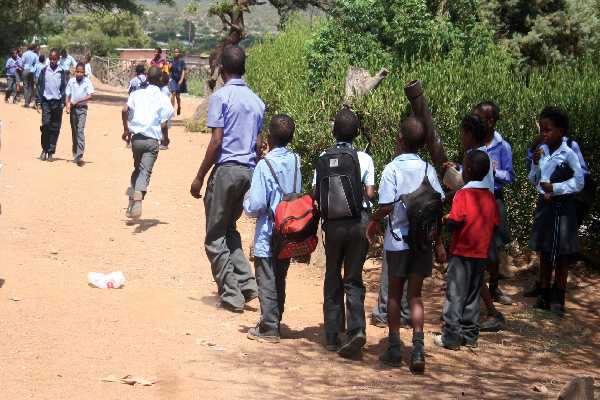Primary school dropouts increase alarming
Primary school dropouts figures are slowly moving up, as the primary school beginners’ intakes increase too, Statistics Botswana has revealed.
The country’s data authority’s latest Primary School Statistics Brief released this week indicate significant rates of drop out and non-completion of primary school is attributed mainly to ill-health, inability to pay school fees and truancy - a problem or situation of children being absent from school regularly without permission.
Anna Majelantle, Statistician General has bemoaned that many children are leaving primary school without acquiring the most basic skills. The data collected from schools through the 2015 annual school census, which forms SB’s latest report indicate that pupils abandon school at different standards before they could complete the full course of primary education.
According to the report there was 2,567 drop-outs in 2015 across the country.
“The total dropout rate was 0.6 percent in 2013, 0.7 percent in 2014 and increased to 0.8 percent in 2015,” said Majelantle in the report.
Johannes Tshukudu the President of the Botswana Teachers’ Union (BTU) said government, teachers and parents should work together to address the alarming growth of dropouts.
Tshukudu said primary school drop-outs challenge has both short-term and long-term bearing on both socio and economic situation of the country.
He pointed out that the syndrome is attributed to poor socio and economic status of families and homes breaking down, leading to limited economic and social support which then force children to look for alternative means of survival and abandon school.
BTU is concerned that though government makes efforts to address this situation through social relief nets, gaps still exist.
“Government interventions are not adequate and constant. They cannot sustain these children (dropouts) to stay in schools. As a result learners are becoming rebellious and bully and eventually leave school,” Tshukudu said.
Tshukudu said school drop outs later haunt communities’ social setting and even economic activities. “We cannot talk of FDI when we have increase of youth dropouts. The after effects is scarce FDI, no investors will invest where there is high rate of crime.
“We need to assist each other, majority of criminals are school drop outs that abandoned school at various levels and satisfy their needs through stealing,” he said. Tshukudu also said politicians must also reassess their political stance in terms of public education to deal with issues of dropouts.
According to SB statistics, Gantsi continues to lead the districts on the number of primary school drop outs, though the trend shows a drop compared to previous years.
“Gantsi had been slightly decreasing but it still had the highest dropout rates across all regions since 2012 being; 6.7 percent in 2012, 3.5 percent in 2013, 3.8 percent in 2014 and 4.4 percent in 2015,” reads part of the report indicating that in the South East region dropouts had been decreasing since 2012 from 0.4 percent to 0.1 percent in 2015.
“Out of the 2567 dropouts recorded in 2015, 1805 or 70.3 percent were due to truancy,” reads part of the report adding that the prevalence of truancy by sex shows that 74.3 percent of males dropped due to truancy compared to 62.6 percent for females.
Majelantle notes that a significant number of both sexes also dropped due to ill-health and inability to pay school fees. Citing Basarwa as the most affected community by dropouts, Tshukudu said introduction of education to this minority community has divorced them from their type of lifestyle.
“Government should introduce temporary structures within Basarwa communities, so that they do not completely divorce the students from their traditional lifestyle but gradually expose them to learning,” Tshukudu said.
Majelantle implored that policies to improve school progression and reduce the numbers of children dropping out of school are critical if Universal Primary Education (UPE) is to be achieved.
“Children are starting primary school in greater numbers than ever before but dropout rates are significant and lead to low levels of primary school completion in many countries,” said Majelantle.
Meanwhile Tshukudu highlighted that several countries in the southern Africa bloc are facing the same challenge citing that Mozambique school dropout can be attributed to political instability, Malawi economic issues, same with Zimbabwe and Namibia dealing with minority groups with cultures yet to accept education as a way of life.






